Dell's new PowerEdge servers, quantum solution accelerates HPC for all customers
The servers were built in partnership with Nvidia and Intel, and are marketed to all organisations - small and large

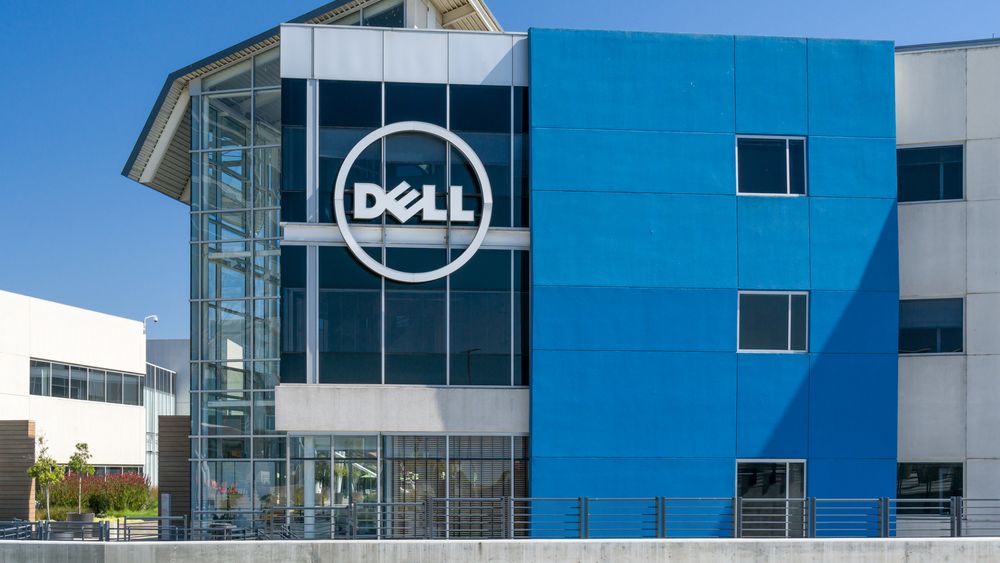
Dell has announced the expansion of its PowerEdge server portfolio with three new products that aim to bring high-performance computing (HPC) to businesses of all sizes.
Built in collaboration with Intel and Nvidia, whose chips power Dell’s new servers, the leading launch is the PowerEdge XE9680 - the company’s first high-performance server to feature eight GPUs.
The PowerEdge XE9680 can be configured with either Nvidia H100 or Nvidia A100 Tensor Core GPUs to work in tandem with two upcoming 4th generation Intel Xeon processors to deliver faster performance in AI applications.
All three of the new server launches are also fitted with Dell’s new Smart Cooling technology that will assist in the smooth running of the equipment while performing tasks such as HPC modelling and simulation, and data visualisation.
“As the world’s largest privately-held cloud computing company, with 27 cloud data centre locations globally, it’s essential that we deploy technology to support the most demanding AI, machine learning, and high-performance computing workloads,” said J.J. Kardwell, CEO at Constant.
“Dell PowerEdge XE9680 servers with the Nvidia H100 Tensor Core GPU and A100 Tensor Core GPU will provide the capabilities needed to deliver maximum performance and value.”
The second launch, the Dell PowerEdge XE9640, aims to reduce an organisation’s energy costs by increasing the server’s rack density, combining it with a direct liquid cooling system - different from Smart Cooling’s air-cooled design.
Sign up today and you will receive a free copy of our Future Focus 2025 report - the leading guidance on AI, cybersecurity and other IT challenges as per 700+ senior executives
The 2U server can be configured with four GPUs, combining Intel’s Xeon processors with silicon from its Data Center GPU Max series - Intel’s highest-density processors and the same chips that will be powering the Aurora supercomputer at Argonne National Laboratory.
Lastly, the Dell PowerEdge XE8640 is for businesses that work with machine learning models for rapid data analysis. The 4U server is fitted with four Nvidia H100 Tensor Core GPUs and two of the upcoming Intel Xeon Scalable processors.
“As compute innovation accelerates to keep pace with demand, customers are looking to upgrade their IT environments and harness advanced computing capabilities to speed discovery and insights,” said Rajesh Pohani, vice president of portfolio and product management for PowerEdge, HPC, and Core Compute at Dell Technologies.
“New Dell Technologies servers and solutions give businesses of all sizes access to technologies once only accessible for the world’s largest research institutions and government agencies, allowing them to tackle HPC, ease AI adoption, and propel their businesses forward.”
RELATED RESOURCE
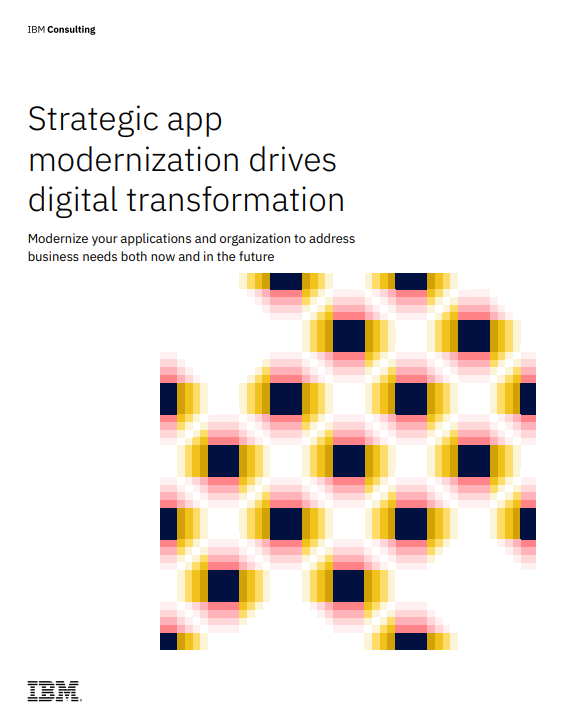
Strategic app modernisation drives digital transformation
Address business needs both now and in the future
The new additions to the PowerEdge server portfolio tie into the Monday launch of the Dell Quantum Computing Solution - a hybrid classical-quantum platform that aims to help businesses run quantum computing workloads in the cloud or on-prem.
Designed with chemistry, natural language processing (NLP), and machine learning in mind, and built with IonQ technology, the platform integrates quantum computing into classical infrastructure, allowing customers to develop algorithmic approaches for simulators to run on PowerEdge servers.
Rounding off the new launches is the new Dell Validated Design for HPC - Risk Assessment which aims to provide more optimal system and memory configurations for more efficient risk assessments in areas such as the finance industry.
The intensive simulations run on Dell’s GPU-accelerated PowerEdge servers, as well as other HPC systems such as Red Hat Enterprise Linux and NVIDIA Bright Cluster Manager software.

Connor Jones has been at the forefront of global cyber security news coverage for the past few years, breaking developments on major stories such as LockBit’s ransomware attack on Royal Mail International, and many others. He has also made sporadic appearances on the ITPro Podcast discussing topics from home desk setups all the way to hacking systems using prosthetic limbs. He has a master’s degree in Magazine Journalism from the University of Sheffield, and has previously written for the likes of Red Bull Esports and UNILAD tech during his career that started in 2015.
-
 Hackers are using LLMs to generate malicious JavaScript in real time
Hackers are using LLMs to generate malicious JavaScript in real timeNews Defenders advised to use runtime behavioral analysis to detect and block malicious activity at the point of execution, directly within the browser
-
 Developers in India are "catching up fast" on AI-generated coding
Developers in India are "catching up fast" on AI-generated codingNews Developers in the United States are leading the world in AI coding practices, at least for now
-
 ‘There’s been tremendous agent washing’: Dell Technologies CTO John Roese says the real potential of AI agents is just being realized – and they could end up managing humans
‘There’s been tremendous agent washing’: Dell Technologies CTO John Roese says the real potential of AI agents is just being realized – and they could end up managing humansNews As businesses look for return on investment with AI, Dell Technologies believes agents will begin showing true value at mid-tier tasks and in managerial roles.
-
 Dell Technologies doubles down on AI with SC25 announcements
Dell Technologies doubles down on AI with SC25 announcementsAI Factories, networking, storage and more get an update, while the company deepens its relationship with Nvidia
-
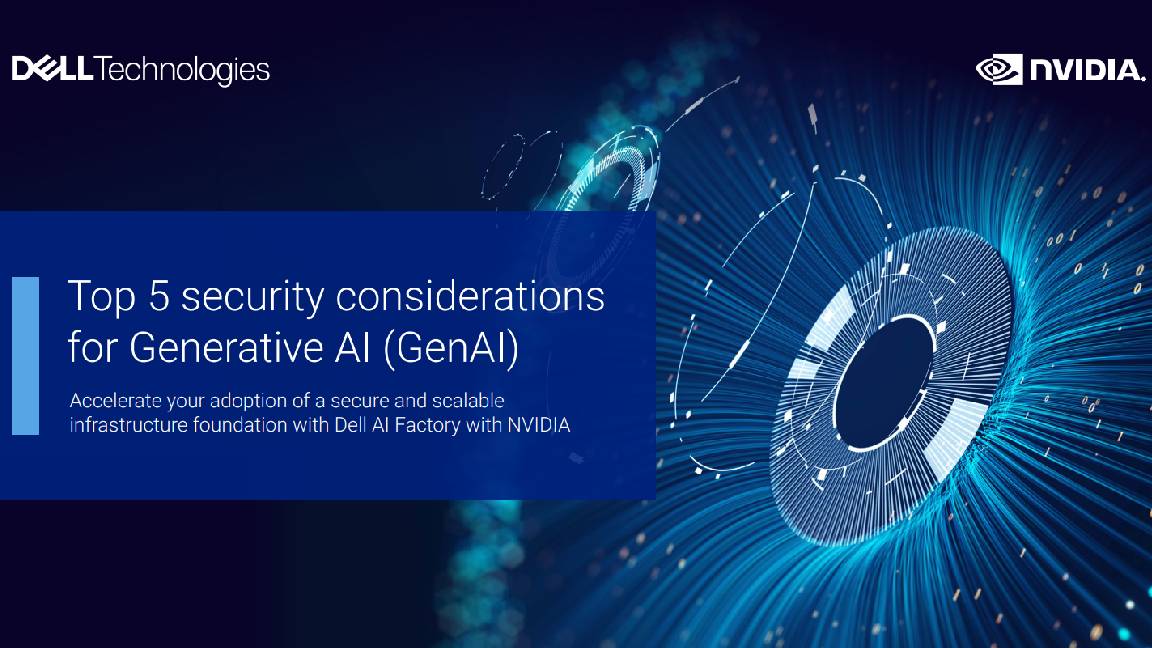 Top five security considerations for Generative AI (Gen AI)
Top five security considerations for Generative AI (Gen AI)whitepaper Protection across AI attack vectors
-
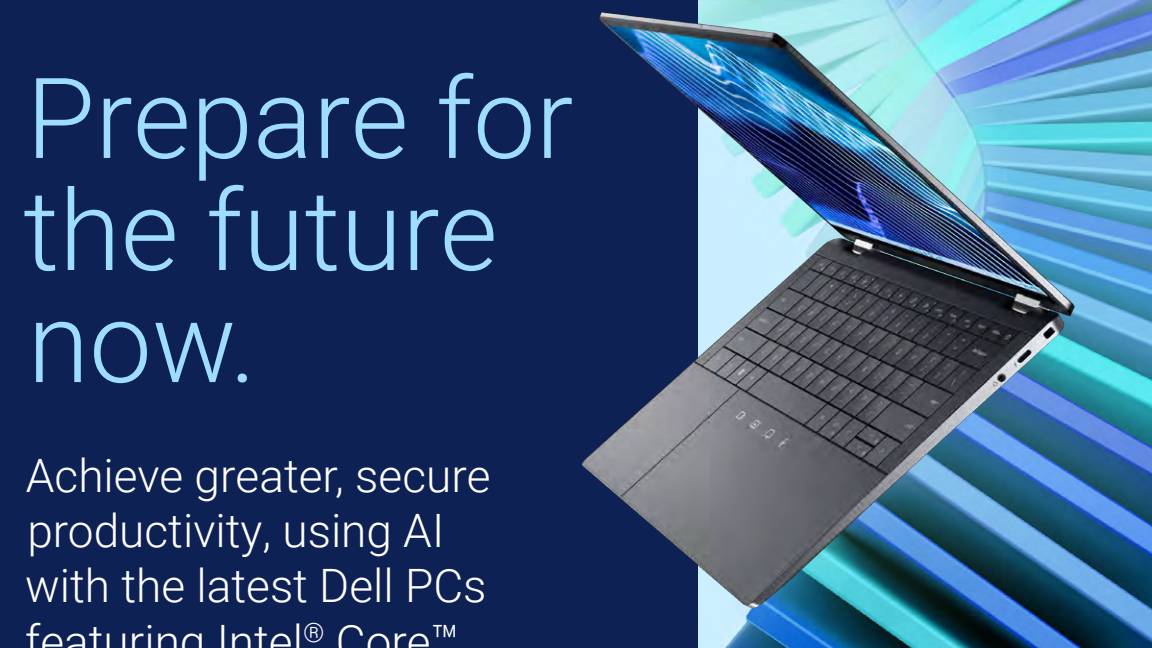 Prepare for the future now. Achieve greater, secure productivity, using AI with the latest Dell PCs powered by Intel® Core™ Ultra and Copilot
Prepare for the future now. Achieve greater, secure productivity, using AI with the latest Dell PCs powered by Intel® Core™ Ultra and Copilotwhitepaper Protection across AI attack vectors
-
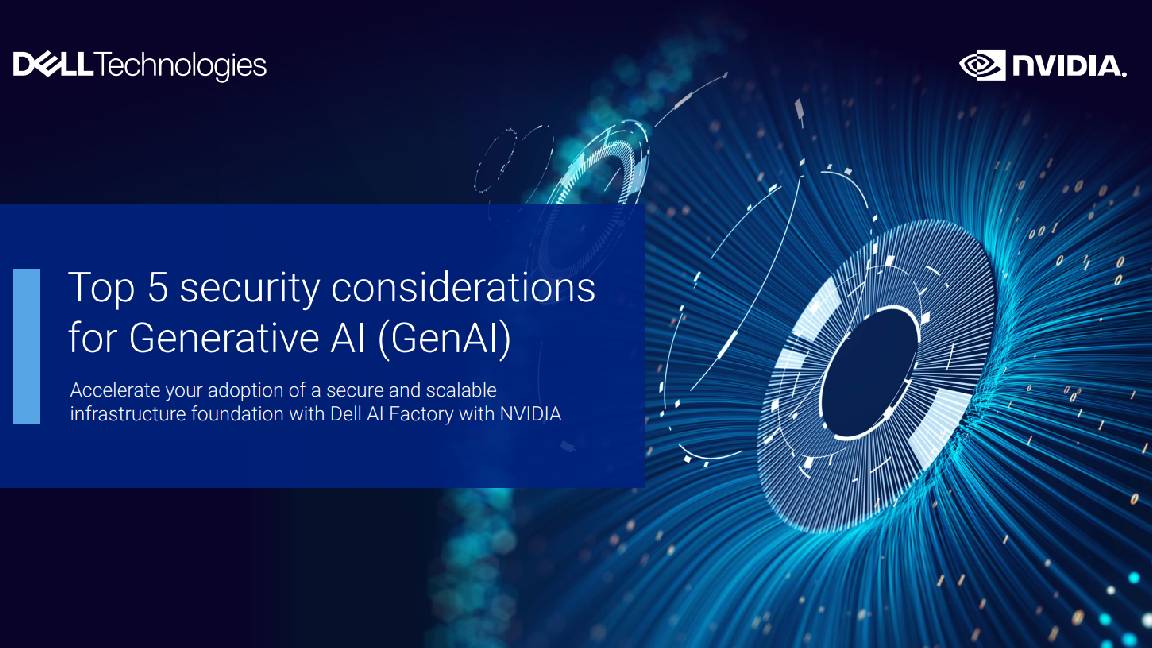 Top five security considerations for generative AI (Gen AI)
Top five security considerations for generative AI (Gen AI)whitepaper Accelerate your adoption of a secure and scalable infrastructure foundation with Dell AI Factory with NVIDIA
-
 Deliver engaging and personalized experiences with your own digital assistants
Deliver engaging and personalized experiences with your own digital assistantswhitepaper Protection across AI attack vectors
-
 The power of generative AI to revolutionize content creation
The power of generative AI to revolutionize content creationwhitepaper Protection across AI attack vectors
-
 Your way to AI
Your way to AIwhitepaper Protection across AI attack vectors